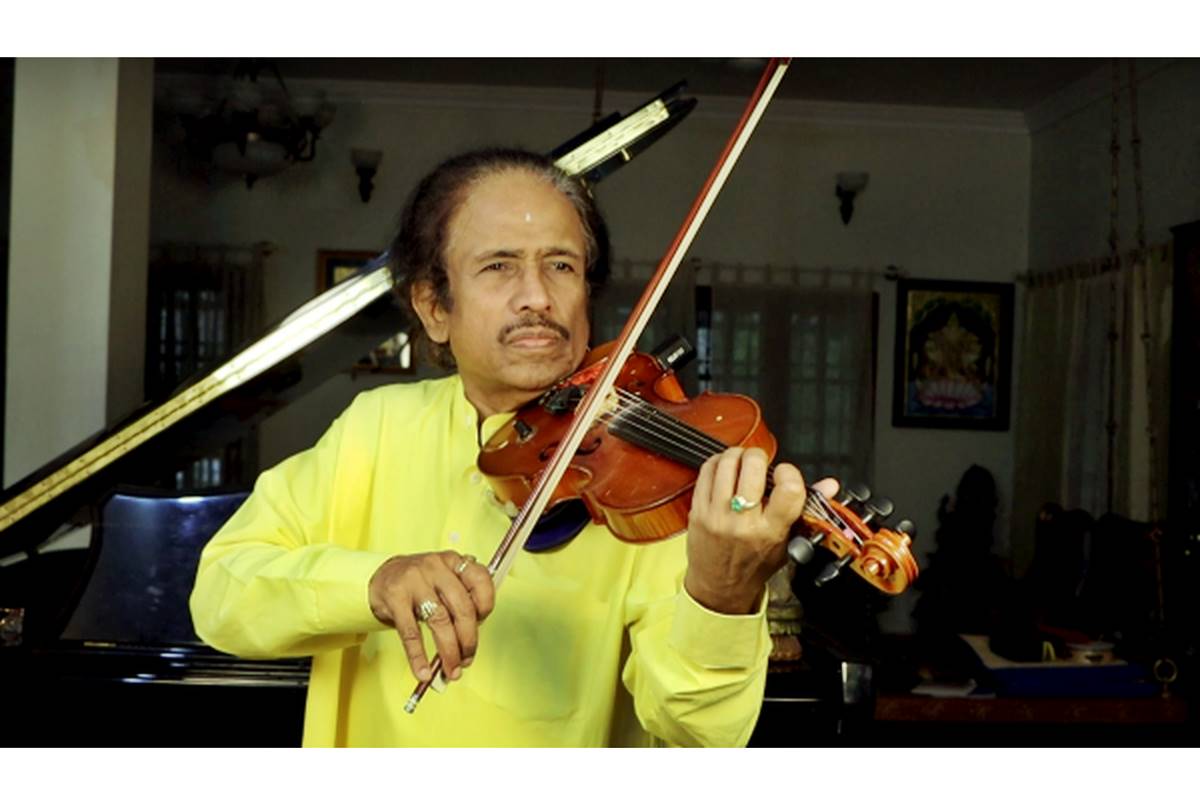Adnan Sami criticizes overuse of ‘ne’ in Punjabi songs
Singer Adnan Sami voices frustration over excessive use of 'Ne' in Punjabi music, sparking online debate. Details inside.
Discover how Padma Bhushan recipient Dr. L. Subramaniam pioneered the international recognition of the Indian violin, transforming it from an accompanying instrument to a solo sensation on global stages.

Image Source: Instagram
https://www.thestatesman.com/lifestyle/sahitya-kala-parishads-annual-thumri-festival-strikes-a-harmonious-chord-in-delhi-1503256101.htmlDr. L Subramaniam, a Padma Bhushan recipient, stands as one of the most renowned violinists globally. Acknowledged for his role in establishing the violin as a South Indian solo instrument on the international stage, he is celebrated as one of India’s premier performers.
In an exclusive conversation with ANI, Subramaniam delves into his journey of propelling the violin to international acclaim and sheds light on the unique features of his special instrument.
Born to Prof V Lakshminarayana Iyer and Seethalakshmi, Subramaniam’s father, a distinguished Carnatic violinist, harbored the aspiration of seeing the violin played as a solo instrument with global recognition.
Advertisement
Reflecting on his father’s vision, Subramaniam recollects his father’s guidance to listen to eminent violinists such as Yehudi Menuhin. “Indian violin, earlier, was mostly an accompanying instrument. My father’s vision was to completely change that, to bring it to a world stage. He said, ‘Go and listen to Menuhin and big orchestras where the violinists are playing in the main Royal Albert Hall, or Carnegie Hall, or Lincoln Centre, Sydney Opera House. Like that, our Indian classical violin should be heard at that level, not just organized by Indian sabhas or organizations. So, if you can do it, do that. Otherwise, come back from the U.S. and practice your medicine.’ He told me about Menuhin, and I found one of the concerts I went to in the early ’80s.”
Subramaniam emphasizes the importance of listening to great musicians to enrich one’s knowledge and shares a memorable experience of receiving a call from Yehudi Menuhin.
“My father told me about this when I was in medical college. So, I heard Jascha Heifetz, one of the greatest violinists, probably one of the greatest of all time. He used to mention all these violinists. All of a sudden, for one of the functions, I got a call from Menuhin. His secretary said, ‘Would you be able to come to perform? He’s celebrating his 70th birthday.’ I was so happy. He belonged to my father’s generation. My father said, ‘You should go and listen to him.’ So, I went and played there. Immediately, after I finished playing, he came to the stage, gave me a big hug, and said, ‘We should do something together.'”
Honoring his father’s vision, Subramaniam collaborated with some of the world’s greatest violinists, including Lord Yehudi Menuhin and Stephane Grappelli.
As the conversation progresses, he reveals a special feature of his violin, designed to be played in open air.
“In 1984 or so, there was a company making special violins for open-air performances. Normally, in a concert hall, you use a microphone, and it doesn’t feedback.”
He explains the concept of feedback, stating, “When the microphone is placed, and the volume increases, you start hearing a boom, hum, boom, all those things. It can be due to the microphone position. You can’t play too close because of the bowing of the violin. I do a lot of cross bowings, so I have to maintain a distance.”
Recalling how he acquired this special violin, he says, “They made this violin and gave it to Stephane Grappelli (French jazz violinist), and he said, ‘If anybody can play the violin, you should give it to Dr. Subramaniam. He will make that sing.’ So they gave it to me and requested whether I could use it for my next concert, which happened to be the New York Philharmonic, performing the piece I wrote for my mother, ‘Fantasy Without Limits,’ a fantasy on Vedic chants. They gave it to me, but in those days, it was a four-string violin. The advantage was having a direct connection to the amplifier.”
He reflects on how the structure of the violin has evolved over time. “There is a wire, or nowadays, there’s wireless, which I use. Better things have come now.”
L Subramaniam has composed numerous musical compositions for ballet performances for renowned dance companies such as the San Jose Ballet Company, the Alvin Ailey American Dance Theatre, and the Mariinsky Ballet.
He has also contributed to the music of films, including ‘Salaam Bombay,’ ‘Mississippi Masala,’ ‘Little Buddha,’ and ‘Cotton Mary.’ (ANI)
Advertisement